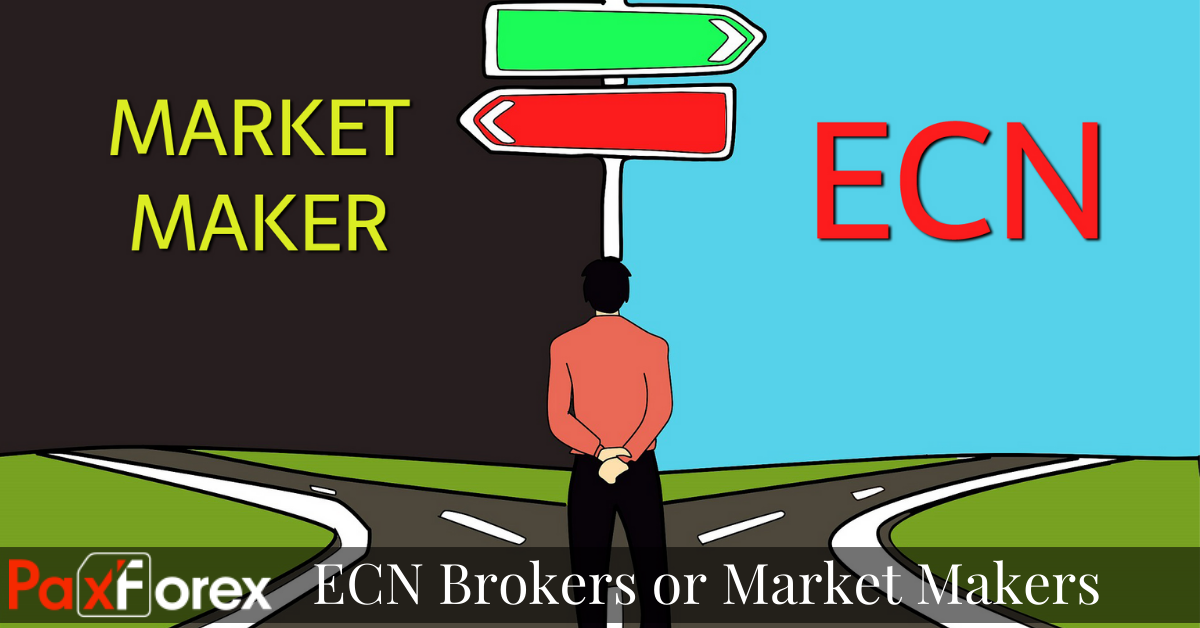
An important consideration to take into account when comparing forex brokers is how they execute customer transactions and whether or not they take the other side of each order and transaction you deal through them. In practice, just about all forex brokers will operate under one of the five common broker business models. Since the differences between these models mean brokers might have substantially variable order execution methods, it pays to understand how each of these models works so that you can select the best order execution method to suit your forex trading business.
The acronym ECN stands for "Electronic Communication Network", it is used to show that a broker is connected to an electronic trading system where several liquidity providers offer competing buy and sell bids. STP denotes a Straight-Through-Processing model, which means that the broker does not intervene in the execution of orders, all trading is done automatically and electronically at the greatest possible speed and without any human intervention (No Dealing Desk - NDD). A market maker broker can also fall into the STP category if execution is carried out by software and not manually by the broker.
A big share of the foreign exchange trading companies is market makers and banks. The responsibilities of a market maker include both buying and selling from his or her client. Market makers are remunerated through selling similar products to different clients but at different prices. They also benefit from being able to allow assets to be purchased at stable prices, that is, by providing market liquidity which in turn boosts trade. Unlike an ECN/STP broker, a Market Maker does not always cover its clients' positions with liquidity providers, so it is obliged to pay its clients' winning trades using its own money or the money of its losing clients, in other words its clients' profits are losses for the broker.
When you open a live account with a market maker broker, indeed you are trading with the broker, not with the real world wide currency market. The market is the broker itself. Although the currency pairs prices are almost the same as the other brokers, on a market maker platform, your orders never go beyond the brokers computers and you trade inside the brokerage firm. So, if you make profit, the broker has to pay it. And, the money you lose goes to the broker’s pocket. It means your profit is the broker’s loss, and vice versa.
It is not bad and illegal to be a market maker broker. What is bad (or maybe illegal depend on who writes the rules) is trying to make the traders lose. Market maker brokers can make a decent amount of money because more than 95% of the traders lose on their own without having to make them lose. However, the problem comes when market maker brokers get greedy and try to make more money within a shorter time. So they manipulate all traders’ positions, no matter if they are winning or losing traders. Of course, they do their best to stop the winning traders and make them close their account and leave.







